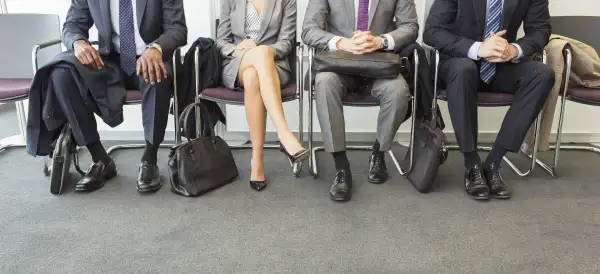People Judge Your Competence Based on How 'Rich' Your Clothes Look, Research Says

Think you’re too deep to care what others wear? You’re probably wrong. And worst of all, you're probably being judged on your appearance by others even more than you think.
New research suggests we may not be able to help ourselves: people judge others' competence in less than a second. And that perception is affected by the clothes we're wearing, specifically whether our clothing appears expensive or not, according to the studies from researchers at Princeton University.
Participants in the nine studies were asked to rate the competence of the same male faces dressed in different outfits. Clothing perceived as more expensive drew higher competence ratings than similar, less expensive-looking apparel, regardless of whether the clothing was formal or informal.
It's not exactly groundbreaking that initial appearances are important, even if they are misleading. (Remember that old "don't judge a book by its cover" saying?) But the researchers argue their results are important because they highlight how people are making a subconscious, immediate decision about things that matter.
“Our work found that people are susceptible to these cues when judging others on meaningful traits, like competence, and that these cues are hard, if not impossible, to ignore,” lead author DongWon Oh said in a research brief published by Princeton's Woodrow Wilson School of Public & International Affairs.
The researchers started with images of 50 male faces, each wearing clothes rated as “richer” or “poorer” by an independent group of judges. They selected clothes that weren't indicative of extreme wealth or extreme poverty, but were still clearly rated by the judges as having significant differences.
To measure whether the initial perceptions would change, the researchers showed participants the faces for three different periods of time, ranging from one second to about 130 milliseconds. Ratings were consistent across all three time durations.
The research team also performed different versions of the study to track whether the results changed. Participants were explicitly told to ignore clothing, for example. And they were given information about the profession and income of the face. Still, in every single case, the results held: The same face with "richer" clothes was judged significantly more competent than the people wearing "poorer" clothes.
Plenty of research has shown first impressions are affected by subconscious biases, and these perceptions can influence serious decisions, including who we vote for and who gets hired for a job. In the workforce, the ripple effects can range from the immediate -- how your clothing is interpreted at a job interview -- to the long term, including how your co-workers view your role in the office.
The authors say their research is troubling because it is so directly tied to socioeconomic status. That means lower-income people may have to overcome obstacles in job searches, for example, where interviewers can make subconscious assumptions on applicants' abilities based on clothing. The researchers suggest employers might consider doing more evaluations on paper to overcome -- or avoid -- unhelpful first impression pitfalls.
